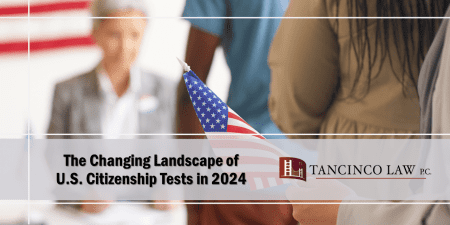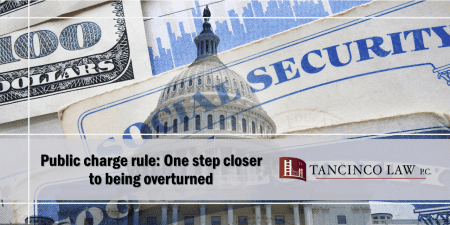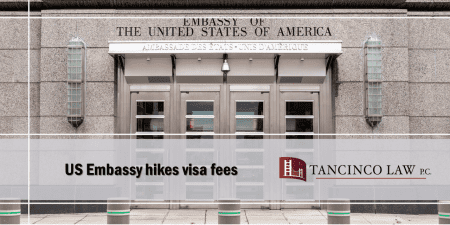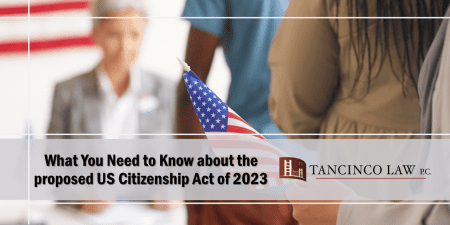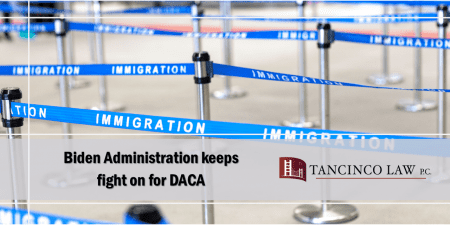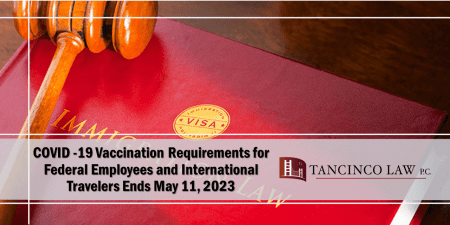When President Biden assumed office, he signed an Executive Order titled “Restoring Faith in Our Legal Immigration System.” One of the primary goals of this order was to enhance integration and inclusion by removing unnecessary barriers to U.S. citizenship. If you recall, the citizenship test underwent a complex transformation during the prior Trump administration, which prompted the Biden administration to reinstate the 2008 version of the test. Now, the U.S. Citizenship and Immigration Services (USCIS) is gearing up for a significant makeover of the citizenship test, set to launch in 2024.
But has the Biden administration truly addressed the citizenship barrier with the redesigned test? The answer may surprise you. As it stands, the U.S. citizenship test is in the process of being overhauled, and the proposed changes are making it more challenging for applicants to pass.
The Current Citizenship Test: A Refresher
Introduced in 2008, the current evaluation of English and civics knowledge for naturalization follows a multi-year collaboration with stakeholders and education experts. It includes answering basic questions during the naturalization interview, an oral civics test where an applicant must correctly answer 6 out of 10 questions (selected from a pool of 100), and reading and writing dictated sentences. The material for the test is readily available for study, and applicants can prepare for it in advance.
Major Changes Proposed: The Redesigned Test
The USCIS is considering three significant changes to the citizenship test:
1. Multiple Choice Civics Exam
The redesign suggests replacing the current oral civics questions with a multiple-choice format. To illustrate the difficulty, let’s take a look at a sample question: Current Question: Name one war fought by the United States in the 1900s. (Answer: “Gulf War”)
Redesigned Multiple-choice Version:
- A. Civil War
- B. Mexican-American War
- C. Korean War
- D. Spanish-American War
The twist? The applicant must know all five wars in the 1900s that could be acceptable answers and identify that the distractors provided are incorrect, as they are answer options for a different civics question about wars in the 1800s.
Bill Bliss, a civic educator from Massachusetts, highlights that the new test focuses more on test-taking skills than actual civics knowledge. It introduces plausible distractors to complicate the process, making it more challenging to prepare for and likely measuring test-taking skill as much as civics knowledge.
2. Picture-Based English Test
Instead of evaluating English proficiency during the naturalization interview with basic questions, the USCIS is proposing a new English exam where applicants describe a scene from a picture displayed on a screen. This approach leaves room for varied interpretations and could be subject to the adjudicator’s discretion, potentially leading to denial or unnecessary retesting.
3. Separate Examinations
Additionally, the USCIS is suggesting that the test be administered separately from the naturalization interview. This change introduces an extra step and additional processing time for those seeking naturalization.
When Will This Redesigned Test Be Implemented?
In December 2022, the USCIS published a rule in the Federal Register announcing trial tests for the new civics and reading exams. These tests are currently being conducted with the assistance of volunteer community-based organizations working with immigrant English language learners and green card holders preparing for naturalization. The USCIS will make a decision about implementing the new testing structure in 2024 based on the results and feedback from these pilot tests.
While the redesigned test is not yet in effect, it’s prudent to consider applying for naturalization sooner if you’re already eligible. Waiting might mean facing a more challenging citizenship examination down the road.

